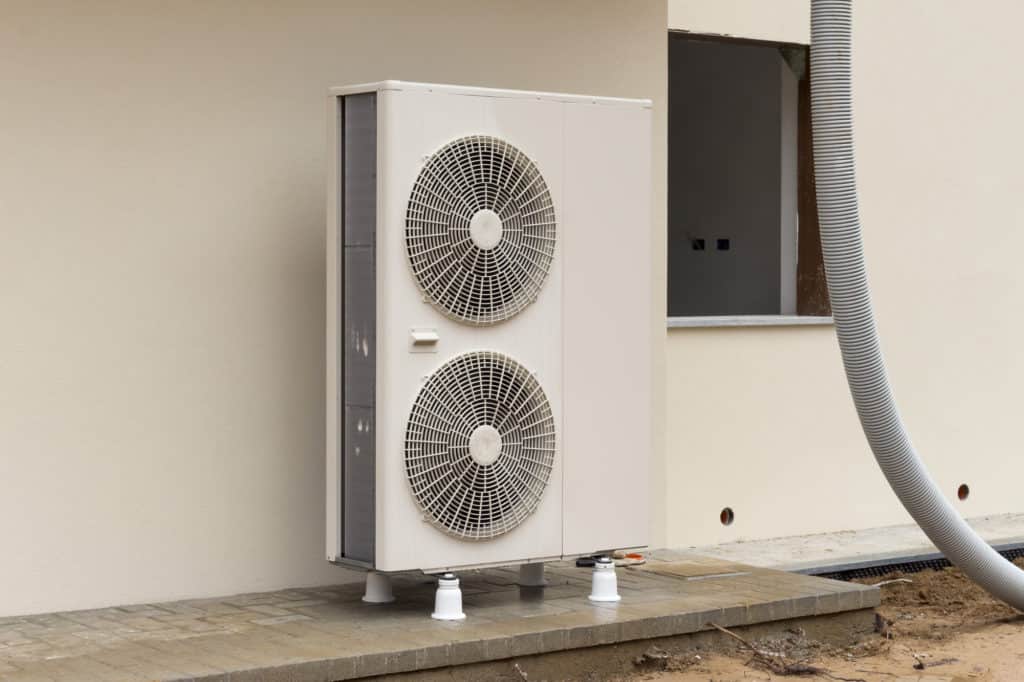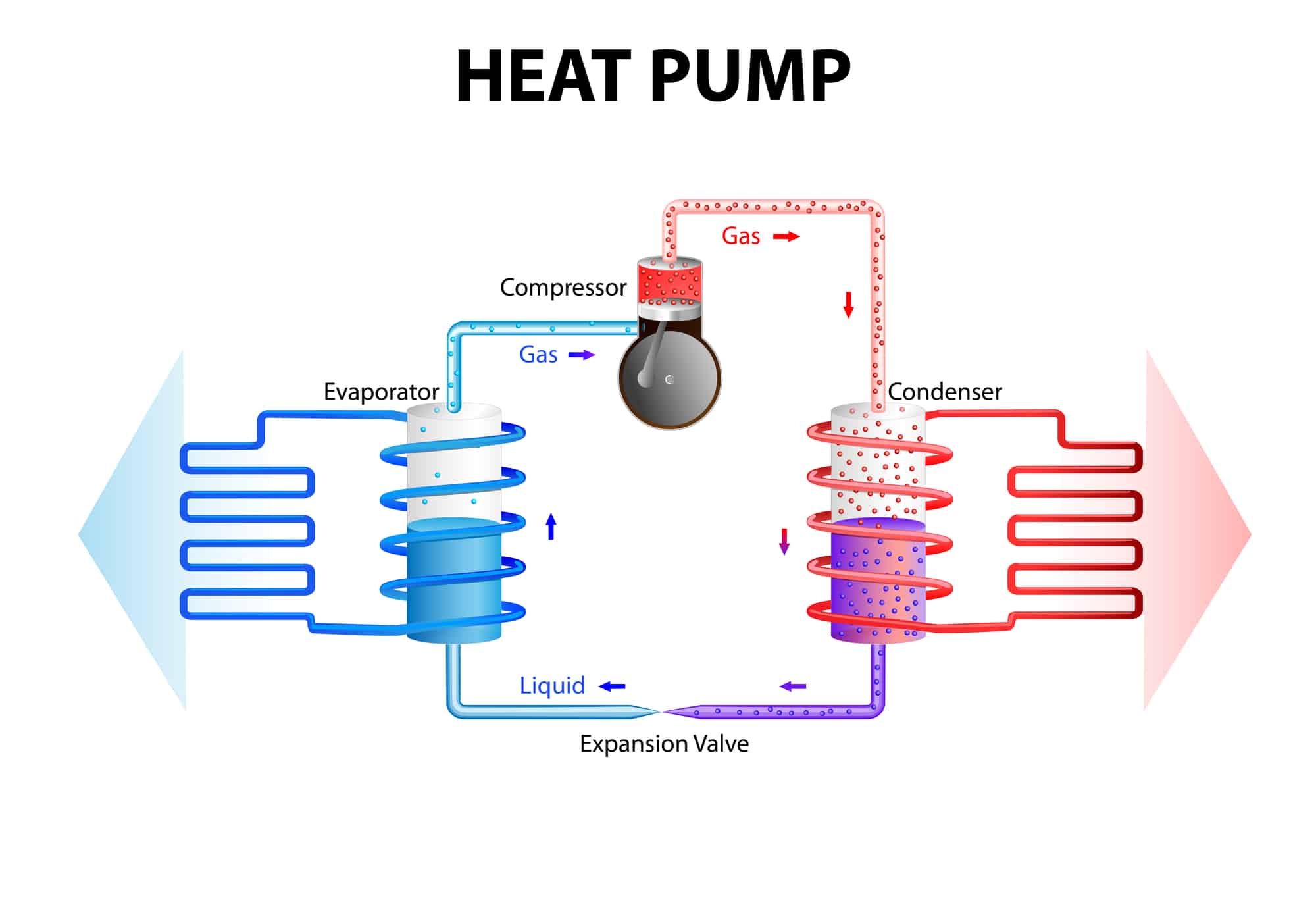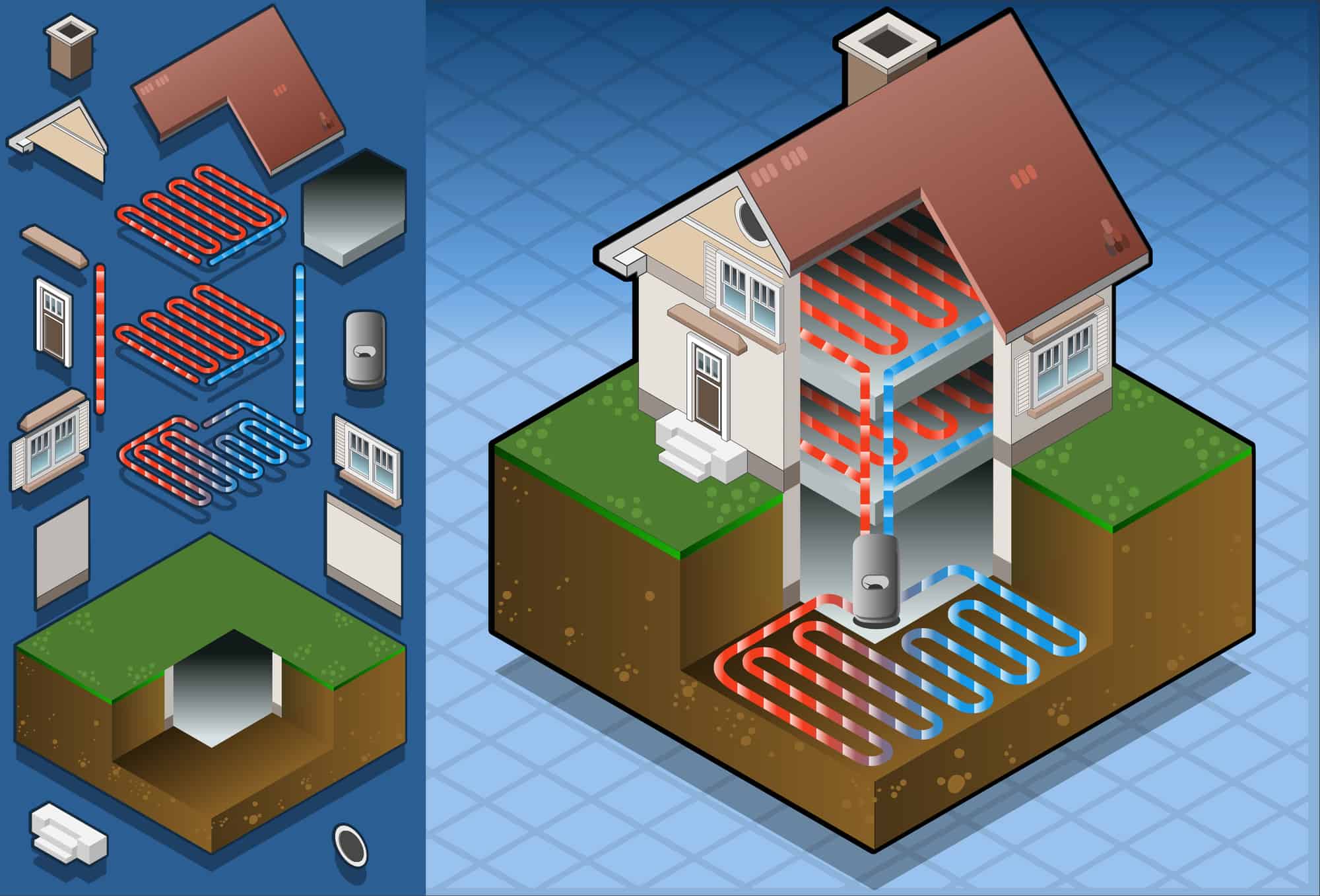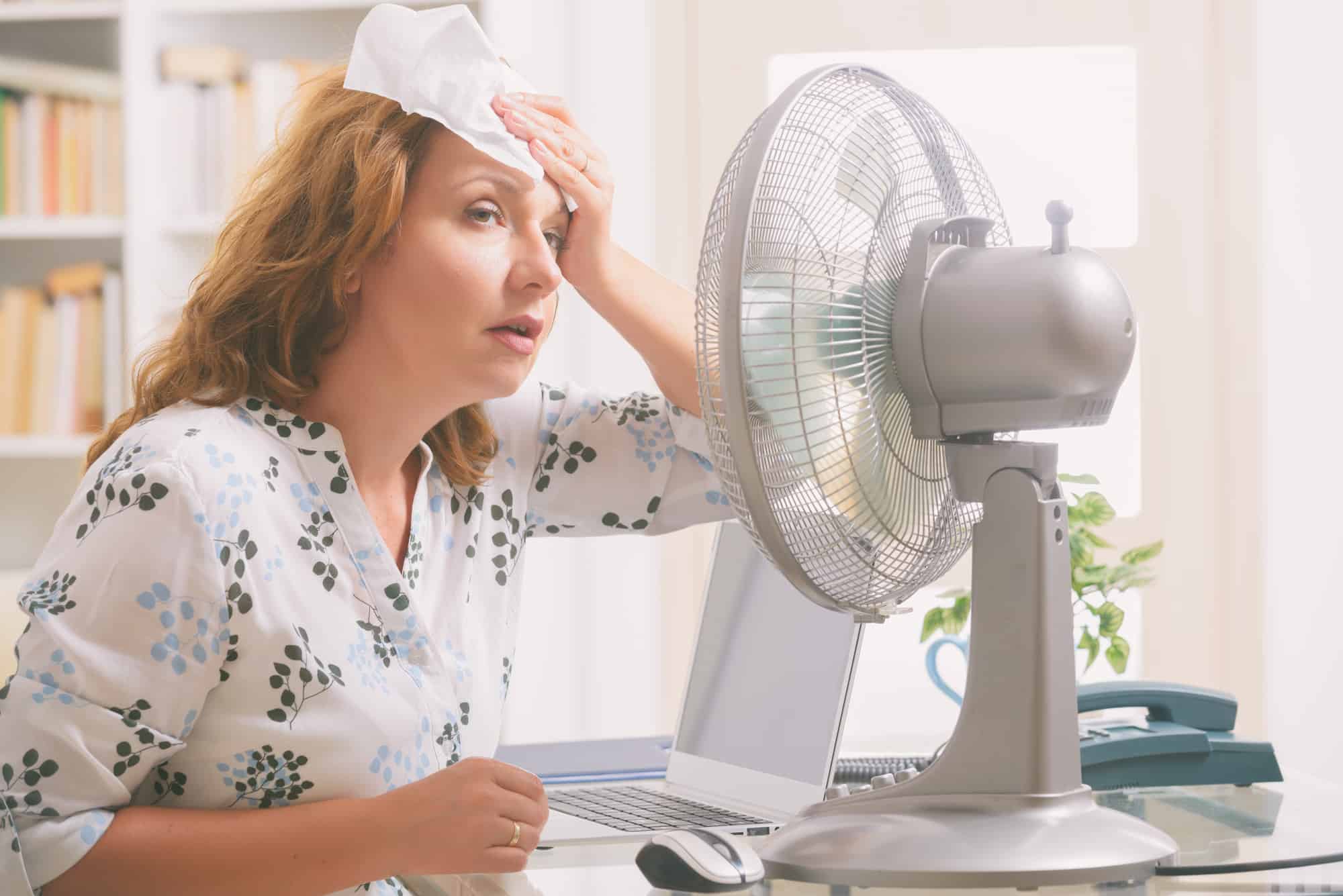As summer approaches, more and more Vancouverites are looking for ways to beat the heat and stay cool at home. With recent record-breaking temperature highs, there is no question that it will be a warm summer in the Lower Mainland.
With heatwaves on the horizon, many jump to replace or upgrade their air conditioning systems. But these can be costly to run throughout the day. An alternative is a simple fan, but this is not as effective in cooling larger homes.
Heat pumps on the other hand are a lesser-known, yet highly effective way to cool your Vancouver home. This may sound counterintuitive – isn’t a heat pump used to heat homes? The answer is no, heat pumps are an excellent way to fend off the heat, without sacrificing efficiency. To better understand, let’s explore how heat pumps work, and how they stack up when compared to air conditioning systems.
Heat Pump vs Air Conditioning
How Do Heat Pumps and Air Conditioners Work?
Air Conditioners:
Most household air conditioners work in the same way. The units will be visible from both the exterior and interior of your home. They simply suck air in from the outside and, once it’s in the system, they cool it via an evaporator coil. Air passes over coils of refrigerant which then work to remove heat from the air. Next, large fans blow the freshly cooled air into the home, until the internal temperature of your home reaches your desired result. The heat removed from the air is expelled, back outside your home. This is why sometimes if you stand outside near an air conditioning unit, you can feel warm air flowing out.
Heat Pumps:
Heat pumps work in a very similar manner. They move warm air outside of your home, but unlike air conditioners, heat pumps can also do the reverse in order to heat your home as well. Heat pumps use the cooling refrigerant to cool your home, but they’re essentially a two-for-one deal and can be used in the winter months. There are geothermal heat pumps that move heat from inside your home, into the ground, and air-source heat pumps, which move warm air from the inside to the outside of your house.
Key Similarities and Differences
Now that you know how both air conditioners and heat pumps work, you may be wondering – “if they can both cool my home in the same way, what makes them so different?”
The biggest difference is that air conditioners serve only one purpose, they can only cool your home. Whereas heat pumps can both heat or cool your home, depending on what’s needed. They can heat the air in both directions. Likewise, heat pumps are also more effective when the external air temperature is over 20 degrees celsius, while air conditioners expend more energy when forced to cool very high-temperature air.
Energy efficiency is also a key factor when it comes to heat pumps. They are far more efficient than most typical furnaces, boilers, radiant heating and cooling systems.
Energy Efficiency
Home heating and cooling are some of the most common types of energy usage in BC. The bills can certainly add up too. Heat pumps are an efficient, energy-powered way to both heat and cool your home. In fact, “Heat pumps can be up to 300% more efficient than electric baseboards and up to 50% more energy efficient for cooling compared to a typical window AC unit.” – BC Hydro Heat pumps are the ideal option for BC residents who are looking to reduce their overall carbon footprint.
A heat pump’s Energy Efficiency Ratio or EER is used to gauge its efficiency when cooling the surrounding area. It is determined by dividing the cooling capacity (Btu/h) by the energy it needs to cool, measured in Watts.
The ultimate energy efficiency will depend largely on the type of heat pump you get.
Air source heat pumps are most common, they work by pulling air in from the outdoors and heating or cooling it as needed. This is by far the most popular type of heat pump in BC and Canada with 700,000 units installed nationwide.
Alternatively, there are ground-source, or geothermal heat pumps, which use the ground as a source of energy to heat and cool your home. These too are far more energy-efficient than traditional furnaces, boilers and air conditioners. However, they work best in climates that reach temperatures far below freezing because they pull thermal energy from underground. They are energy efficient as well, but they excel in cold climates.
“On average, a well-designed ground-source system will yield savings that are about 10-20% more than would be provided by a best in class, cold climate air-source heat pump sized to cover most of the building heating load.” (Natural Resources Canada) When in doubt, look for the Energy Star Rating to ensure you’re getting a heat pump that is approved as an energy-efficient unit.
Why does a heat pump make sense?
Summers are Getting Hotter
The truth is that summers in Vancouver and the Lower Mainland are getting hotter. Each year temperatures rise higher with the effects of climate change. An unfortunate result of this is the increase in forest fires during the summer months in BC. Poor air quality and high temperatures mean that you’re not going to want to open a window to cool off. Heat pumps can be used with air purifiers to ensure the cleanest, high-quality air in your home.
Vancouverites Are Spending More Time At Home
The other stark reality is that most Vancouverites will be spending more time at home in the summer months. With the pandemic, many are working from home either full-time or part-time. For most, there is no longer the luxury of climate-controlled office spaces to retreat to during the day when the hot weather hits. It’s a good idea to consider your well-being in the long term and invest in a heat pump.
It Facilitates Year-Round Comfort
One of the best things about heat pumps is that they work in two ways. When it’s hot out they can move cool air in, and when it’s cold, they can be used as heaters to warm the home. This keeps you and your family comfortable year-round, you do not have to worry about getting separate appliances to both heat and cool your home. The heat pump does it all.
Metro Vancouver has an ideal climate for cost-effective heat pump operation
Vancouver is a unique city in Canada, unlike other provinces, the winters do not drop way below freezing temperatures. Sources suggest that heat pumps function most effectively in temperatures that don’t get too cold in the winter. This makes Vancouver the perfect place to have a heat pump installed in your home.
Who can get a heat pump?
Due to the required setup and physical structure of heat pumps, a detached building is the ideal use case. That is why they are preferred by homeowners and business owners.
However, it is certainly possible for residents of apartments and condominiums, even townhomes to have heat pumps installed, particularly for ground floor units. But in these cases, it is best to check with your strata council beforehand.
Before purchasing a heat pump, be sure to check with your city bylaws. Some outdoor units can be louder than others and this could potentially disturb neighbours.
How much does a heat pump cost?
It is true that heat pumps generally cost more up-front than air conditioners. However, due to their energy efficiency, there are many rebates available in BC to help cover the costs. FortisBC Rebates, BC Hydro and CleanBC rebates offer rebates when you purchase a new heat pump.
In Vancouver, a new heat pump can range in price from $3,000 to over $7000. The price largely depends on the size of your house as well as the type of heat pump (brand name, energy rating, size, etc.) required. Some models can cost up to $10,000 for commercial use. Do not forget the price of installation, which can vary with different contractors.
It is worth using the many rebates available to your advantage, you can receive up to $2000 in rebates in some cases. The energy efficiency of a heat pump also means that you will save money in the long run on utility bills.
Will I save money on utilities with a heat pump?
Heat pumps are a clean and energy-efficient way to cool your home this summer and the savings outweigh the upfront costs when you think about the results long term. The cost is far less when you consider the fact that heat pumps serve two purposes as both heating and cooling systems as well.
Longevity is a key factor here, not only do heat pumps do twice the work for less, they also last longer, which means your money goes further. Most systems last up to 15 years, whereas air conditioners should be replaced after 10 years.
Recap: It’s a decision that you and your wallet will feel good about
If you are renovating your home this summer or looking to replace your existing air conditioning system, consider a heat pump as your energy-efficient, multi-purpose alternative.
The initial cost may seem daunting so it is important to be sure you’re making an informed decision beforehand. Consider your current heating and cooling system when planning your purchase.
If you have a gas system for heating your home and you plan to purchase an electric heat pump, your home may need an energy system upgrade which can add to the initial cost. That is why it is so important to do your research and be sure you’re making a decision that you and your wallet can feel good about.
Hillcrest can take care of everything
If you are ready to start heating and cooling your home the clean way, Hillcrest Plumbing & Heating can provide all of the HVAC services needed to handle the removal of old air conditioners, and installation of your new heat pump and disposal of old equipment. Our experienced technicians take the time to explain what you can expect during the installation process. Our knowledgeable team can answer any questions. We can even help you with rebates to give you a clear understanding of what it will cost.




